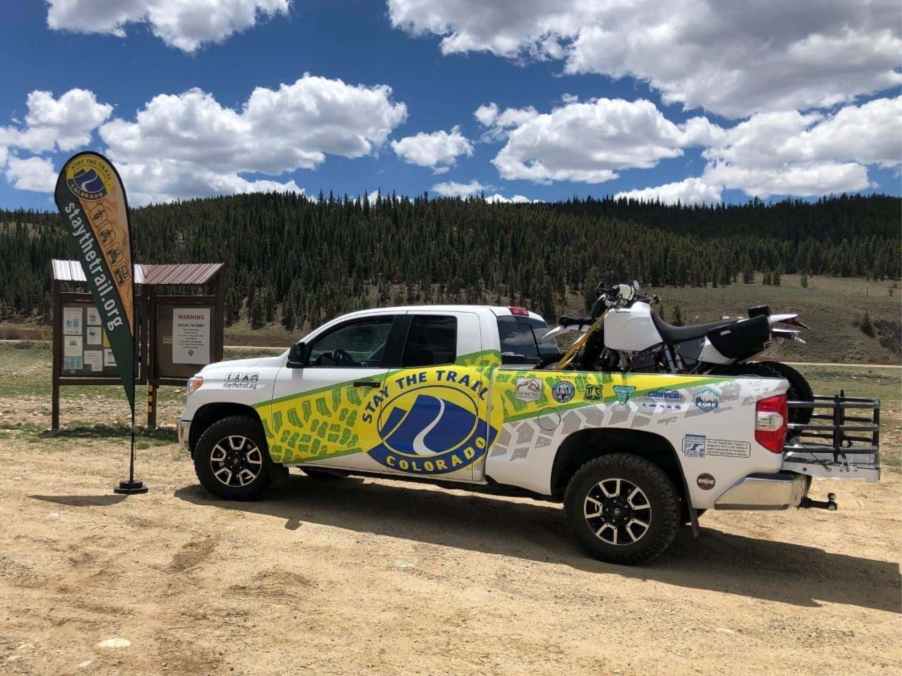
ATV, Dirt Bike, and Side-by-Side Riders Clash With Colorado Locals on OHV Rules
ATVs, dirt bikes, and side-by-sides have made a huge resurgence during the COVID-19 lockdowns and into our current world. Sales screamed during the lockdown as people needed fun and socially distanced activities to keep sane. In particular, some places like Colorado are inundated with these off-road machines, and the locals aren’t pumped as more OHV rules aren’t followed as they pass through town.

While these smaller, more rural mountain towns happily welcome the tourism money, the residents of some small towns are mad that their once quiet town and wilderness are now buzzing with these ATVs and dirt bikes.
What is an OHV?

The technical term for the broad category that describes these types of vehicles is Off-Highway Vehicles or OHVs. Colorado isn’t the only place where OHVs are popular, but it is a massively popular outdoor activity for the region. The popularity is less of a problem so much as how many people aren’t following the OHV rules.
According to The Drive, many small-town Colorado residents complain about people riding dirt bikes and other types of ATVs ripping through residential areas. These vehicles aren’t often road legal for one. For two, certain dirt bikes and four-wheelers can be super loud and annoying. OHV rules are meant to keep riders as well as drivers and pedestrians safe.
Even still, that is only one part of the issue. The other part that is harder to control is out in the wilderness. Many people are reporting these vehicles raging out on other trails which can be disruptive and even dangerous.
How can the ATV and dirt bike problem be addressed?
“In 2015, the Colorado Parks and Wildlife division that oversees OHV use counted 170,000 of the vehicles registered in the state,” Nancy Lofholm wrote for the Colorado Sun. “Last year, there were 203,873. Around 46,000 of those came from out of state.”
Ryan Dull is the Stewardship, and Outreach Specialist for the educational non-profit group Stay the Trail. Stay the Trail is dedicated to helping spread the word about safe and responsible OHV use in the state of Colorado. Dull admits that keeping everyone happy in this conversation is a tough balance to strike. He is trying to figure out ways to inform riders about the OHV rules and how better to enforce them.
Dull says that since this time last year, motorized recreation is up nearly 400 percent. Of course, a huge part of this resulted from people needing something to do that was safe and socially distant. There is also a larger trend of adventure motoring that has been happening for nearly 10 years now.
Dull is a Colorado resident and a dirt bike rider. He understands both sides of the argument well. He obviously loves riding trails as well as keeping his home peaceful, safe, and clean. His goal is to interact with as many riders and drivers as possible and help them to respect the trails better and ride fast, safely. He believes that teaching is the better approach to fixing the problem in a world that would rather reprimand.
In his own words: “The trails are shared with little kids, campers, equestrians, and pedestrians… So getting out there and driving like it’s a no-rules track, drifting, and roosting is not good. If everyone drove considerately, it would be fine. If you had someone in your neighborhood just outside of your house doing doughnuts and revving their engine and screaming down the street, you’d have a problem with that too.”
R E S P E C T the OHV rules
Dull’s thoughts on the issue can be easily summed up by saying that they will have more fun overall if riders can ride more responsibly and respectfully in certain areas. The same goes for the locals who don’t ride. If they can be more respectful and understanding for the ATV and dirt bike riders, they may garner more respect and civility in return. A little respect goes a long way.



